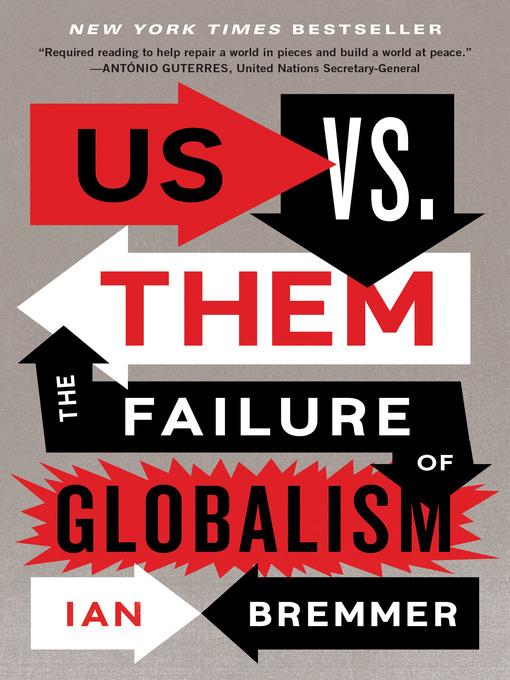
Us vs. Them
The Failure of Globalism
کتاب های مرتبط
- اطلاعات
- نقد و بررسی
- دیدگاه کاربران
نقد و بررسی

April 2, 2018
In this gimlet-eyed look at current political trends, Eurasia Group president Bremmer (Superpower: Three Choices for America’s Role in the World) succinctly explains why people all over the world are turning against their neighbors: they feel powerless, angry, and left behind by globalization. He identifies various reasons for such strife, from increases in industrial automation and the influx of migrants to wealthier countries to a general sense that politicians do not know how to make struggling citizens’ lives better. He analyzes the situations of a dozen countries (Nigeria, Saudi Arabia, Brazil, Venezuela, Russia, India, and China among them) in depth and finds common risk factors for the “us versus them” mentality: large youth populations, lack of employment opportunities, and charismatic authoritarian leaders with a knack for pitting groups against one another. These countries, he predicts, will erect physical and technological “walls” to keep people in line, and Europe and the United States will follow suit, becoming more protectionist as the developing world struggles. The author closes with a philosophical chapter on the social contract between governments and their subjects, concluding that the politics of “us versus them” will only get worse before governments change their ways. This astute but not optimistic analysis may be difficult reading for those overwhelmed by the current political climate.

An examination of the coming worldwide explosion of populism."Even as [globalism] makes the world better, it breeds economic and cultural insecurity, and when people act out of fear, bad things happen," writes Bremmer (Superpower: Three Choices for America's Role in the World, 2015, etc.), president of Eurasia Group, a political risk consulting firm. Already, popular discontent with ruling elites has fostered the protectionism of Donald Trump and Britain's decision to leave the European Union. Unfortunately, writes the author, that is just the beginning. In this lucid, provocative book, he argues that the battle between us and them (globalization's "winners and losers"), driven by "fears of diluted identity" and "economic anxieties," is set to grow in intensity, especially in the developing world, which often lacks sturdy institutions and social safety nets. Anxiety dictates that "the borders are open, and the foreigners are coming. They will steal your job. They will cost you your pension and your health care by bankrupting your system. They will pollute your traditional culture." To protect themselves, angry citizens turn to politicians who build barriers (physical walls, tariffs, etc.) to stem the loss of jobs and seeming onslaught of strangers, criminals, and terrorists. The book's most revealing chapter analyzes political trends in the dozen largest developing countries. With more than half of the world's people (and an even higher percentage of its youth), they will determine the future of the global economy. All face increasing popular frustration: growing inequality in Egypt, corruption and economic decline in Russia, religious tensions in India, water and electricity shortages in Venezuela, and the urban-rural wealth divide in China. The needs of these and other countries--Indonesia, Turkey, Brazil, Mexico, Nigeria, Saudi Arabia, and South Africa--will further widen the gap between winners and losers, ultimately forcing a moment of global "reckoning." Bremmer urges a rewriting of social contracts to help people thrive in dangerous times.A cogent analysis of the concurrent Trump/Brexit phenomena and a dire warning about what lies ahead.
COPYRIGHT(2018) Kirkus Reviews, ALL RIGHTS RESERVED. (Online Review)

























دیدگاه کاربران